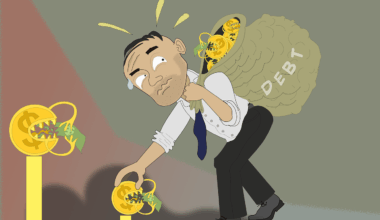Top Strategies for Writing Successful Grant Proposals
Writing grant proposals is a critical skill for any nonprofit aspiring for funding. To succeed, start with a clear understanding of the funder’s priorities. Each donor or foundation has specific funding goals and objectives, so it is vital to read their guidelines thoroughly. Ensure your proposal aligns with these goals. Next, gather and document data that demonstrates the need for your project. Utilize statistics and case studies to support your claims robustly. Make a compelling narrative to illustrate the importance of your work. Such a narrative can include personal stories or testimonials that evoke emotional responses and articulate the community impact. Outline goals clearly, explaining how their support will achieve these outcomes. Define how you will measure success through specific, measurable metrics. Also, engage key stakeholders in your proposal process, including board members, clients, and community leaders, ensuring diverse input and strength. Finally, don’t forget to proofread for clarity and precision. Use concise language, avoiding jargon. An accessible proposal not only captures attention but also increases your chances of funding. In conclusion, success in grant writing lies in fulfilling funder expectations while encapsulating your project’s vision.
Research and Preparation
Before embarking on writing a grant proposal, extensive research and preparation are essential. Identify potential funders whose missions align with your nonprofit objectives; this alignment increases the likelihood of receiving funds. Explore various databases or utilize online resources such as GrantWatch to discover grants suitable for your organization. Carefully analyze the funding organization’s history, including previous projects they supported. Understanding their criteria will inform your proposal strategy significantly. When preparing, develop a comprehensive project plan detailing your initiative’s scope, objectives, activities, and budget. This plan serves as a framework for your proposal and highlights necessary aspects, ensuring clarity. Additionally, gather supporting documents like your organization’s financial statements and tax-exempt status, as they often accompany grant applications. Reach out to trusted colleagues, mentors, or even past grantees for advice on the application process. Networking can uncover valuable insights or tips that enhance your proposal’s quality. Ultimately, a well-prepared foundation is key to crafting a persuasive narrative that resonates with potential funders. By investing time in research, you increase the chances of presenting a compelling case that captures interest and builds trust.
Strong writing is an indispensable skill when drafting a successful grant proposal. Your text needs to convey your message clearly and persuasively while maintaining an audience-friendly tone. To engage readers effectively, employ an active voice and avoid overly complex terminology. Remember that not all reviewers will be experts in your field, so clarity is crucial. Don’t forget to structure your proposal logically. Utilize headings and subheadings to break up text and guide reviewers through your narrative smoothly. Creating concise paragraphs that maintain focus will help retain attention. Additionally, storytelling can elevate your writing; using narratives that illustrate your project’s impact can resonate emotionally with funders. Highlight key points in bold to emphasize the most important information recruiters need to notice, ensuring these stand out in your text. Always maintain a professional and respectful tone, addressing any potential concerns directly, and demonstrating your organization’s credibility. Lastly, consider enlisting a skilled editor to review your proposal. A fresh set of eyes can catch errors and offer insights on how to improve clarity, coherence, and overall appeal. Strong writing combined with robust ideas can make your grant proposal more compelling adjusted to expectations.
Budgeting Wisely
Budgeting is a crucial facet of grant proposals and requires careful attention. A well-prepared budget demonstrates fiscal responsibility and enhances your credibility as a nonprofit organization. Begin by outlining the total funding you need to execute your project successfully. Break this down into specific categories such as personnel costs, supplies, and overhead expenses. Clearly justify each budget line item, explaining why each cost is essential. Proper justification provides transparency and reassures funders that their money will contribute effectively to your mission. Moreover, familiarize yourself with the funder’s budgetary guidelines, ensuring compliance with any specified formats or restrictions. Including any in-kind contributions or additional funding sources can strengthen your budget, showing funders that you are proactive and resourceful. It is beneficial to differentiate between direct and indirect costs. Funders appreciate clarity, as it enhances their understanding of how their contributions will be utilized. Providing detailed narratives accompanying budget figures can clarify your financial needs further while illustrating the anticipated impact of their support. Ensure you keep your budget flexible to accommodate potential changes while remaining aligned with your project objectives. Accuracy in your budget will build trust and enhance your proposal’s chances of funding.
One element that can distinguish your proposal is the effective articulation of measurable outcomes. Funders seek reassurance that their investments yield measurable benefits that optimize their impact. Begin by defining clear, achievable goals for your project. Each goal should contain specific objectives that specify what success looks like. Implement measures such as surveys, data collection methods, or pre and post-program assessments that solidify how you will track these objectives. Highlight how you will report progress back to the funder; providing transparency may bolster their confidence in your accountability. When outlining your evaluation methods, ensure they adhere to ethical standards and respect any confidentiality or data privacy issues of participants involved. Incorporating feedback mechanisms within your project design can also enhance accountability by demonstrating responsiveness to community needs or stakeholder expectations. After completion, an evaluation report summarizing outcomes not only fulfills obligations to funders but also serves as crucial learning for future projects. Regularly review project goals and adapt as necessary while keeping the overall vision in sight. Constructing a framework of clear, measurable outcomes increases project legitimacy, outlining why your initiative matters and how it can make a substantial impact.
Building Relationships With Funders
Grants are not merely transactions; they are relationships. Cultivating relationships with funders fosters personal connections that can lead to ongoing support. Begin establishing these relationships early by engaging funders before submitting the proposal. Attend information sessions and events organized by potential funders, and utilize social media to share your organization’s initiatives. Show interest in their work by learning about their priorities, values, and past funded projects. Personalizing your proposal by referencing how their past initiatives align with your project can strengthen this connection. After establishing initial communication, reach out to funders with updates about your organization’s activities, successes, and growth. This regular communication keeps your organization on their radar and creates a feeling of community. Sharing successes demonstrates accountability and the positive impact of their investment, reinforcing trust. After you receive a grant, stay in touch through progress reports, sharing challenges and triumphs alike. Transparency fosters goodwill, providing funders with a sense of pride in their contributions. Remember, a supportive relationship with funders can eventually lead to additional resources, mentoring, or advice beyond the initial grant. Relationships create longevity, making funders more likely to support future initiatives.
In closing, writing a successful grant proposal involves a blend of skill, research, and strategic thinking. Following the steps outlined in this article can enhance your chances of securing vital funding for your nonprofit. Start with thorough research to identify alignments between your proposal and funder interests, ensuring your narrative resonates. Your written delivery should emphasize clarity, with engaging and precise language that connects emotionally with funders. Building a comprehensive budget with transparent justification can also elevate your proposal since funders prioritize accountability in how their resources are utilized. Additionally, set attainable, measurable outcomes to prove to funders that their investment makes a viable difference. Cultivate relationships with funders to establish a solid foundation for ongoing collaboration, increasing long-term support for your organization. Finally, continuously improve your proposals by gathering feedback from reviewers and collaborators. Learning from each application, successful or not, builds better proposals in the future. Grant writing is an evolving skill that improves with practice and reflection. As such, remain committed to refining your approach, remaining vigilant in your mission, and making a difference in the communities you serve.
This section discusses the importance of continuous learning and adaptation in the realm of grant writing. Understanding that each proposal might not yield the desired funding is crucial for growth. After each submission, evaluate feedback provided, if any, to identify areas for improvement. Engage with colleagues or mentors to gain insights into external perspectives on your work. Adaptability in strategies will lead to revised approaches, enriching your future applications. Regularly updating your skills and knowledge about funding trends and grant writing strategies is essential. Attend workshops, webinars, and conferences focused on nonprofit funding and grant writing to stay ahead. Networking with other grant writers or joining relevant online communities can facilitate pooling resources and exchanging best practices. Implementing new ideas will only strengthen your abilities and familiarize you with innovative writing styles or methodologies. Foster a culture of ongoing improvement within your organization, encouraging team members to share and learn from each other. Keeping up with sector changes ensures proposals remain relevant, thus enhancing your organization’s credibility. In conclusion, the arc of grant writing is a journey of continuous learning that, when embraced, leads to enduring achievements in funding successes.


